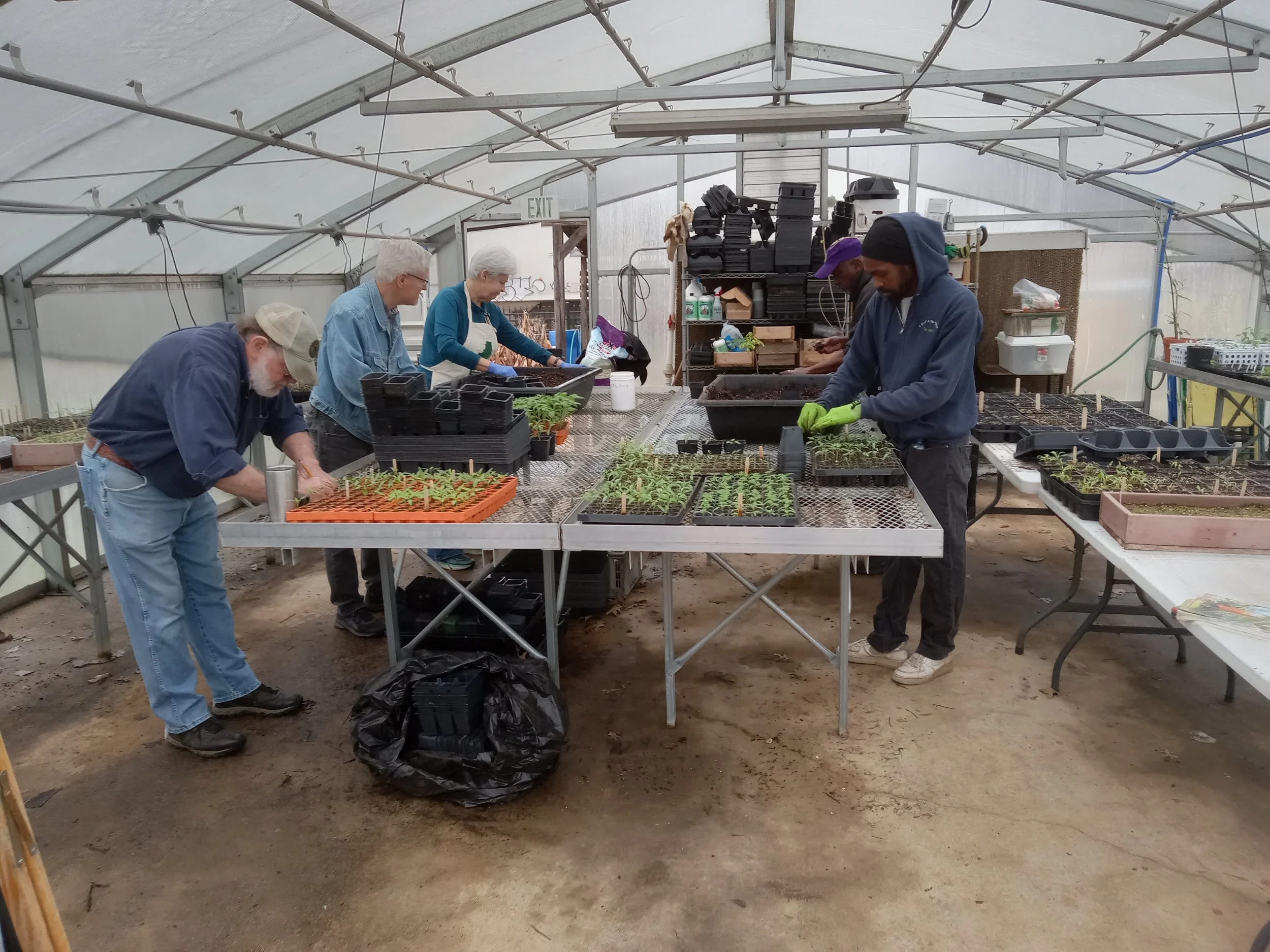
EAT South is an urban teaching farm that engages our community by educating about, gathering people around, and growing good food. We aim to change the way food travels from the ground to our plates.
Curious about growing your own paints and dyes? This free class is for you! You’ll learn about easy-to-grow dye plants and where to start when making dye.
From garden classes to volunteer projects to seed swaps, E.A.T. South, your urban teaching farm, works to help Montgomery grow. Join us with a contribution today!
Farmer Amanda and one of our worm bins at ACES’ STEM in the Garden Vworkshop at Park Crossing High School. Photo credit: Alabama Cooperative Extension System
Backyard Composting Resources
worms, hot piles & more
Reduce your greenhouse gas production, improve your soil, grow more food, save money - composting can do this (and more) for you and the world.
From compost piles to worm bins to community composting, we’ve spent this year experimenting with different ways to turn food scraps into compost.
Check out our Backyard Compost Resource Guide to discover the compost system that is right for you.
Cotton fabric dyed with Japanese indigo grown in Montgomery, Alabama.
Grow your own colors this summer
For four years, we’ve grown dye plants with our neighbor, artist, and dye co-conspirator Tara Cady Sartorius.
Getting started with natural dyes is relatively easy. Making dye is like making a really strong tea!
We’ve compiled a list of our favorite blogs, books, and Instagram feeds that all have resources and inspiration to get you started. You’ll find it on our blog or through the link below.
We’ve also included a list of plants we’ve grown over the past four years and some observations about which one like (or are very much challenged by) our climate.
Look for more dye classes in the fall.
Question? Email Farmer Caylor.
Master Gardener Dean Fowler helps creates an indoor garden at Wares Ferry Elementary School.
Educator Resource Guide
Want a garden at your school? Start here. Our Educator Resource Guide includes links to resources to help you start and sustain a garden at your school.
You’ll find sections on curricula, fundraising, building a garden team, and more.
School gardens have shown to reduce anxiety in children and improve test scores. Gardens provide practical skills and are places where children can apply lessons from all subjects.
Follow the link below for our updated 2024 guide.











